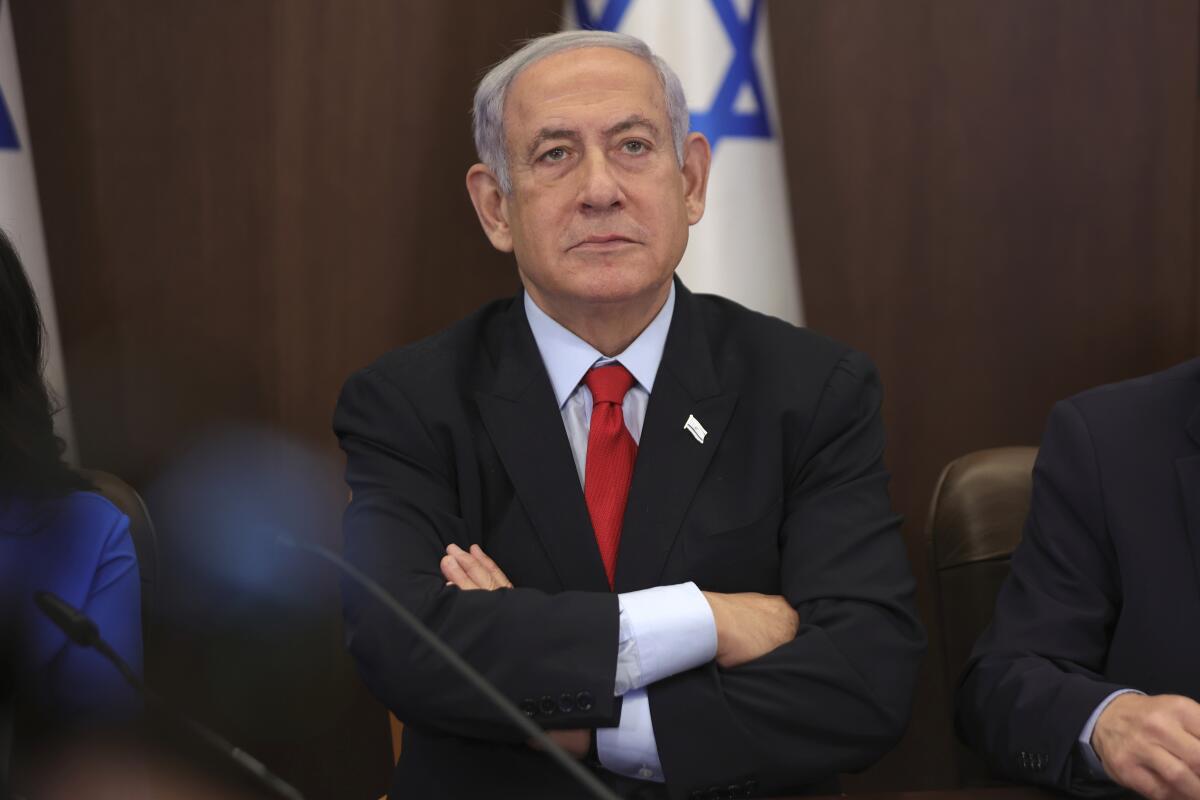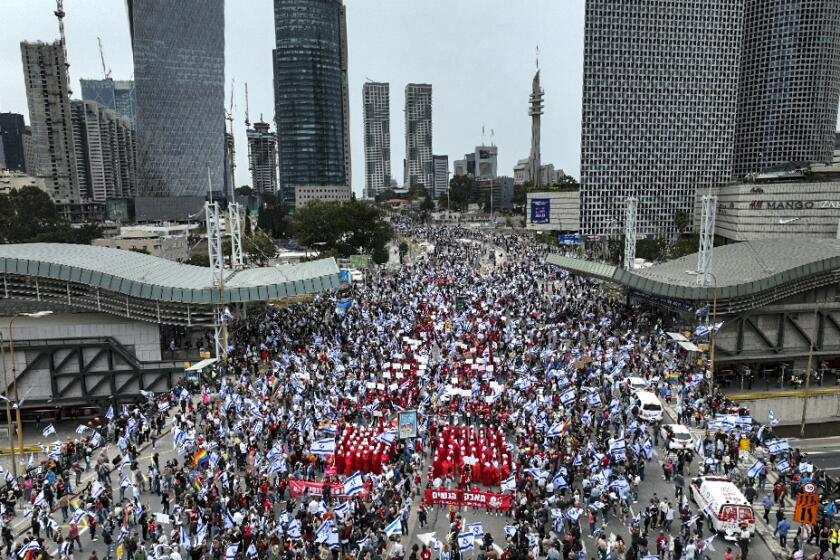Israel’s full high court to hear petitions against judiciary law in September

- Share via
JERUSALEM — Israel’s Supreme Court said Monday that a full panel of 15 justices would hear petitions in September against a contentious law that was passed last week by Prime Minister Benjamin Netanyahu’s government and that has spurred mass protests.
The law was one of a series of proposed changes to Israel’s judiciary put forward by Netanyahu’s government earlier this year that seek to curb the power of the Supreme Court. The judicial overhaul plan has been met with months of sustained mass protest against the legislation and drawn criticism from the White House.
Critics of the overhaul say that the package of laws would concentrate power in the hands of the ruling coalition and erode the system of checks and balances between branches of government. Proponents say the measures are necessary to limit the power of unelected judges who they say are overly activist.
Israel’s parliament has passed the first of several laws proposed as part of a contentious judicial overhaul that has sparked massive public protests.
Netanyahu and his allies passed a law last week that removes the high court’s ability to annul government decisions considered “unreasonable.” The “reasonableness standard” was implemented by the Supreme Court earlier this year to thwart the appointment of a Netanyahu ally as interior minister after he had recently pleaded guilty to tax offenses.
The court said the hearing concerning the law striking down the “reasonableness standard” would take place Sept. 12 with a full bench of 15 justices. The Supreme Court typically hears cases with smaller panels of justices, but appears to have opted for a full complement of judges because of the highly delicate nature of the matter.
The Netanyahu administration’s push to overhaul the judiciary has deeply divided an already highly polarized country and sparked the longest sustained protests in the country’s history.
Netanyahu and his allies took office in December after the country’s fifth election in less than four years, most of them referendums on the longtime leader’s fitness to serve while on trial for corruption.
More to Read
Sign up for Essential California
The most important California stories and recommendations in your inbox every morning.
You may occasionally receive promotional content from the Los Angeles Times.











